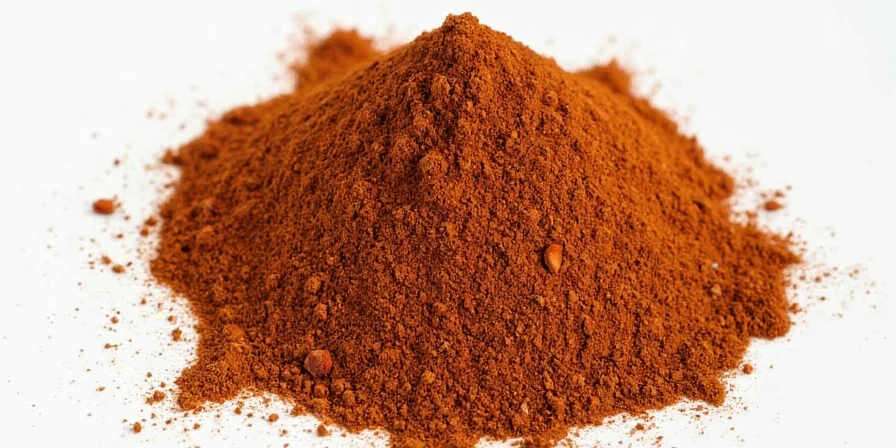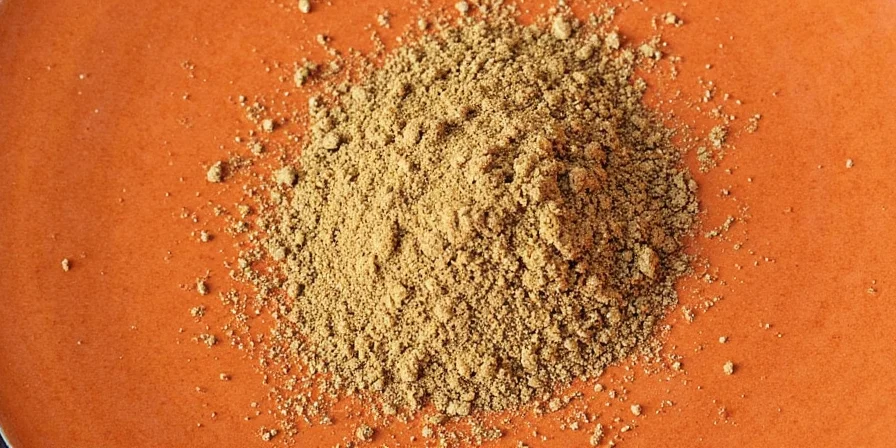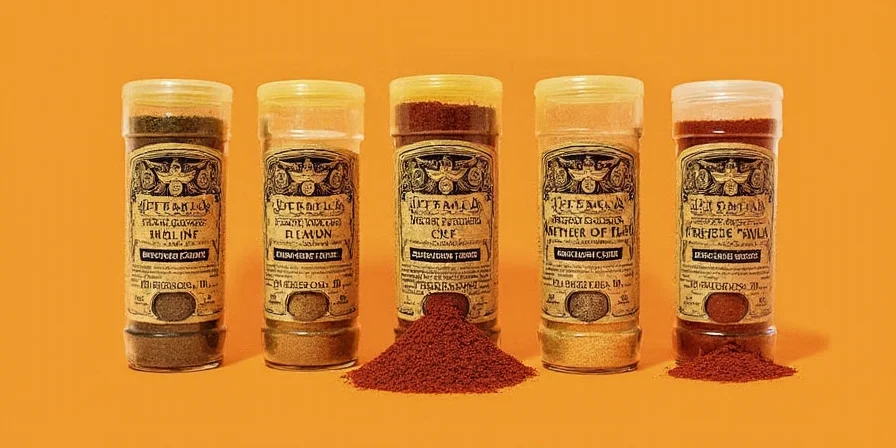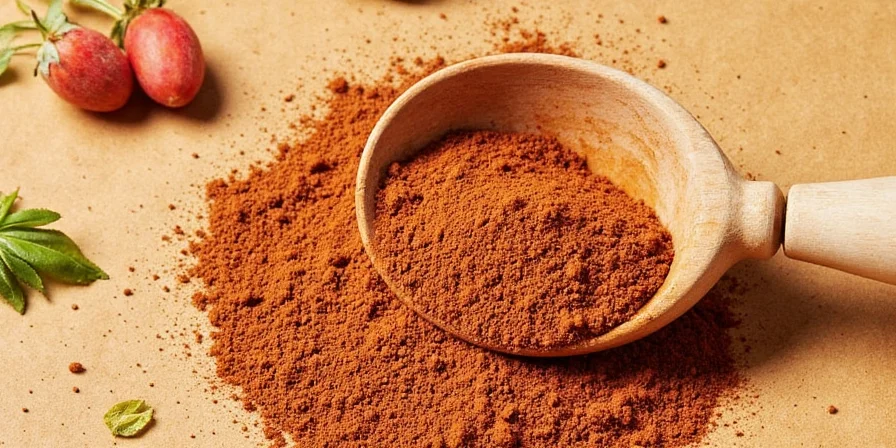Gumbo powder, also known as filé powder, is a traditional thickening agent and flavor enhancer made from dried and ground sassafras leaves. Unlike roux or okra, it's added at the end of cooking to preserve its distinctive earthy flavor with subtle wintergreen notes while providing viscosity through natural mucilage compounds. For home cooks seeking authentic Southern flavors, understanding when and how to use this ingredient properly transforms ordinary dishes into restaurant-quality creations.

Fig. 1 – A close-up of gumbo powder sitting proudly in a rustic bowl.
| Key Fact | Detail |
|---|---|
| Primary Source | Sassafras leaves, dried and finely ground |
| Taste Profile | Earthy, slightly peppery, with a hint of wintergreen |
| Optimal Temperature Activation | 77°C (170°F) - when wintergreen notes emerge |
| Thickening Capacity | Absorbs 10-15x its weight in liquid |
| Shelf Life | 6 months when properly stored |
Why Gumbo Powder Outperforms Common Substitutes
Most cooks don't realize that gumbo powder's magic lies in its unique mucilage content. While roux creates thickness through starch gelatinization and okra releases slimy compounds when cooked, sassafras contains hydrophilic polysaccharides that thicken without clouding broths. This botanical precision explains why substitutions fail to deliver authentic flavor. Unlike paprika or Cajun seasoning blends, gumbo powder serves dual roles as both thickener and flavor enhancer with distinctive wintergreen notes impossible to replicate.
5 Proven Techniques for Perfect Gumbo Powder Application
- Temperature control matters: Add to dishes at 77°C (170°F), never boiling liquid, to activate mucilage without clumping
- Clump prevention method: Mix ½ tsp with 2 tbsp cold broth before adding to dishes for smooth integration
- Portion precision: Use ¼ teaspoon per 4 servings - potency intensifies during resting
- Flavor pairing: Combine with smoked proteins like andouille sausage to amplify woodsy notes
- Storage solution: Keep in vacuum-sealed containers away from light to maintain potency

Fig. 3 – Grilled chicken with a light dusting of gumbo powder, ready to wow your taste buds.
Gumbo Powder Usage Guide: When to Add and What to Pair
| Dish Type | Optimal Timing | Recommended Amount | Best Pairings |
|---|---|---|---|
| Gumbo/Stews | Off-heat, just before serving | ¼ tsp per 4 servings | Roux, smoked sausage |
| Grilled Meats | Before cooking as dry rub | ½ tsp per pound | Garlic, black pepper |
| Compound Butter | Mixed into softened butter | 1 tsp per stick butter | Lemon zest, fresh herbs |
| Mashed Potatoes | During mashing process | 1 tsp per 4 servings | Smoked cheese, chives |
| Seafood Rubs | Before cooking | 1 tsp per pound seafood | Cayenne, smoked paprika |
Debunking the Top 4 Gumbo Powder Myths
- "You must add it to every gumbo" - Modern chefs often skip it when using okra or roux as primary thickeners
- "It's just crushed leaves with no special properties" - Sassafras contains unique mucilage compounds impossible to replicate
- "Flour makes an adequate substitute" - Flour thickens but eliminates the distinctive wintergreen flavor profile
- "It's dangerous to consume" - Commercial products contain regulated safrole levels well below safety thresholds

Fig. 5 – A perfect bowl of gumbo — thickened and flavored with the magic of gumbo powder.
Why Your Gumbo Powder Isn't Working (And How to Fix It)
The most common issue home cooks face is clumping, which occurs when powder is added directly to hot liquid. Professional kitchens solve this by creating a slurry with cold broth first. Another frequent mistake is using expired powder - properly stored gumbo powder maintains potency for 6 months, but degrades rapidly when exposed to air or light. For authentic results, always purchase from specialty Southern suppliers rather than generic spice brands that often cut quality.
Advanced Applications Beyond Traditional Gumbo
- Cornbread enhancement: Add 1 tsp to batter for earthy depth without overpowering
- BBQ sauce modifier: Stir into tomato-based sauces for complex flavor dimension
- Vegetable roasting: Toss root vegetables with gumbo powder before roasting
- Cocktail infusion: Steep in simple syrup for unique Southern-inspired drinks
- Chocolate pairing: Surprisingly complements dark chocolate in baking applications
Frequently Asked Questions
Is gumbo powder the same as filé powder?
Yes, both terms refer to ground sassafras leaves. 'Filé' is the Creole term, while 'gumbo powder' is the common commercial name.
Can I use gumbo powder in place of okra?
They serve similar thickening purposes but aren't interchangeable. Okra adds vegetal notes and requires cooking time, while gumbo powder provides earthy depth and must be added at the end. Using both creates layered texture.
Why does my gumbo powder clump in liquid?
Clumping occurs when added to boiling liquid. Always mix with cold broth first or stir in off-heat below 82°C (180°F) to activate mucilage gradually.
How do I fix gumbo powder that's lost potency?
Once gumbo powder degrades (typically after 6 months), it cannot be revived. Store future batches in vacuum-sealed containers away from light and heat to maximize shelf life.
What's the difference between gumbo powder and Cajun seasoning?
Gumbo powder is a single-ingredient thickener from sassafras leaves, while Cajun seasoning is a spice blend typically containing paprika, garlic, onion, cayenne, and black pepper. They serve different purposes in cooking.











 浙公网安备
33010002000092号
浙公网安备
33010002000092号 浙B2-20120091-4
浙B2-20120091-4